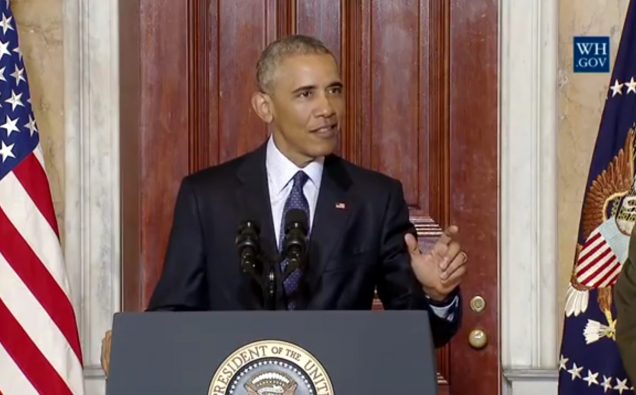
Observing that presumptive Republican nominee Donald Trump embodies global elites, President Barack Obama has said the businessman hardly represents a populist surge of working class on either side of the Atlantic.
Obama also cautioned against “hysteria” over the Britain’s decision to say goodbye to the European Union, and saw no strong parallels between the Brexit vote and rise of Trump on American political scene.
“Mr. Trump embodies global elites and has taken full advantage of it his entire life,” the US president told the National Public Radio.
He laughed during an interview when asked about Trump’s saying that U.S. voters will have a chance to reject “the global elite” in the November election.
“So, he’s hardly a spokesperson, a legitimate spokesperson for a populist surge of working-class people on either side of the Atlantic.”
While noting that the differences are greater than the similarities between Brexit and the sentiments in the U.S. presidential election, he remarked there are “some parallels with what Trump has been trying to stir up here” as it relates to “xenophobia and anti-immigrant sentiment.”
“The ability to tap into a fear that people may have about losing control and to offer some vague nostalgic feelings about how we’ll make Britain great again or we’ll make America great again, and the subtext for that is somehow that a bunch of foreigners and funny-looking people are coming in here and changing the basic character of the nation; I think that some of that is out there,” the US president said.
He did not anticipate “major, cataclysmic changes” as a result of Britain’s Brexit vote.
“I think that the best way to think about this is, a pause button has been pressed on the project of full European integration,” Obama said.
“I would not overstate it,” he added. “There’s been a little bit of hysteria post-Brexit vote, as if somehow NATO’s gone, the trans-Atlantic alliance is dissolving, and every country is rushing off to its own corner. That’s not what’s happening.”
The United States and Europe continue to share international interests. He cited the example of Norway which is not an E.U. member, but is still one of the U.S.’s closest allies.
“The basic core values of Europe, the tenants of liberal market-based democracies; those aren’t changing,” he said.











